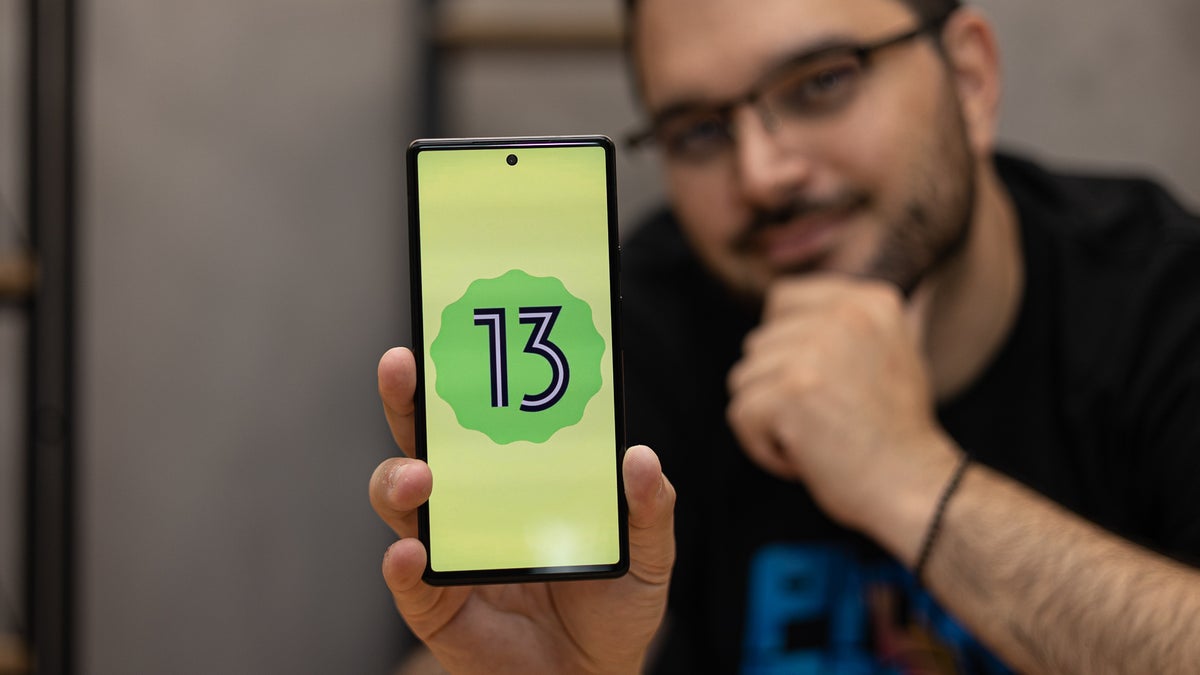
Elevating Privacy: Exploring Android 13’s Cutting-Edge Enhancements
In the ever-evolving landscape of mobile technology, user privacy remains a paramount concern. Android 13, the latest iteration of the Android operating system, introduces a range of cutting-edge enhancements aimed at elevating user privacy to new heights. Let’s delve into the innovative features that make Android 13 a frontrunner in prioritizing user data protection.
Robust Biometric Authentication: A Secure Gateway
Android 13 takes a significant leap forward in biometric authentication, providing a secure gateway to user data. The operating system enhances facial recognition and fingerprint scanning technologies, ensuring that accessing the device is not only convenient but also highly secure. With robust biometric authentication, Android 13 establishes a strong first line of defense against unauthorized access.
To explore the advancements in biometric authentication, consider checking out Android 13’s privacy enhancements here. The emphasis on user security showcases the commitment to protecting personal information.
Enhanced App Permission Controls: Empowering User Choices
Empowering users with control over their data, Android 13 introduces enhanced app permission controls. Users can now granularly manage what information each app can access, from location data to the device’s camera and microphone. This level of control not only bolsters user privacy but also ensures that apps operate within the boundaries set by the user.
Privacy Dashboard: Insights at a Glance
Android 13 introduces a Privacy Dashboard, providing users with insights at a glance. This dashboard offers a comprehensive overview of how and when apps have accessed sensitive data. By visualizing data access patterns, users can make informed decisions about which apps they trust with their information, fostering transparency in data usage.
One-Time Permission and Expiration: Temporary Access
Android 13 introduces the concept of one-time permission and permission expiration, offering users more control over temporary access to sensitive features. For example, if an app requests location data, users can grant one-time permission, and the app’s access expires after the current session. This feature minimizes the risk of prolonged, unnecessary data access.
Microphone and Camera Indicators: Visual Alerts
To enhance user awareness, Android 13 incorporates visual indicators for microphone and camera usage. Whenever an app accesses the microphone or camera, a discreet indicator appears, alerting users to potential privacy-invading activities. These visual cues provide transparency and empower users to identify and respond to potential privacy concerns.
Private Compute Core: On-Device Processing
Android 13 introduces a groundbreaking privacy feature known as the Private Compute Core. This feature enables on-device processing of sensitive data, reducing the need to send information to external servers for analysis. By prioritizing on-device computation, Android 13 enhances privacy by minimizing data exposure to external networks.
Encrypted Folder: Secure Storage
Android 13 enhances privacy with the introduction of an encrypted folder for secure storage. Users can designate specific files and documents to reside within this folder, ensuring an additional layer of protection. Whether it’s confidential work documents or personal photos, the encrypted folder provides a secure enclave for sensitive information.
Advanced Tracking Prevention: Limiting Cross-App Tracking
Android 13 implements advanced tracking prevention measures, limiting cross-app tracking and protecting user data from being extensively shared across different applications. By curbing the ability of apps to track users across various platforms, Android 13 takes a significant step in fortifying user privacy in the interconnected digital ecosystem.
Enhanced Browser Privacy Controls: Tailored Browsing Experience
The web browsing experience receives a privacy-focused overhaul in Android 13, with enhanced browser privacy controls. Users can now tailor their privacy settings for a more personalized and secure browsing experience. From cookie management to enhanced tracking prevention, these controls put users in charge of their online privacy.
Regular Security Updates: Sustaining a Secure Environment
Android 13 reinforces its commitment to user privacy by ensuring regular security updates. Timely patches and updates play a crucial role in addressing potential vulnerabilities and keeping the operating system resilient against emerging threats. This dedication to ongoing security maintenance reflects the proactive approach to sustaining a secure environment for Android 13 users.
Empowering Users in the Digital Age: Android 13’s Privacy Commitment
In conclusion, Android 13’s cutting-edge privacy enhancements mark a significant stride in empowering users in the digital age. With robust biometric authentication, enhanced app permission controls, a privacy dashboard, one-time permission, visual indicators, the Private Compute Core, an encrypted folder, advanced tracking prevention, browser privacy controls, and regular security updates, Android 13 places user privacy at the forefront.
To experience the next level of privacy enhancements, explore Android 13’s features here. The operating system’s commitment to privacy not only sets a new standard in user-centric design but also reinforces the idea that privacy is not just a feature; it’s a fundamental right in the ever-evolving digital landscape.